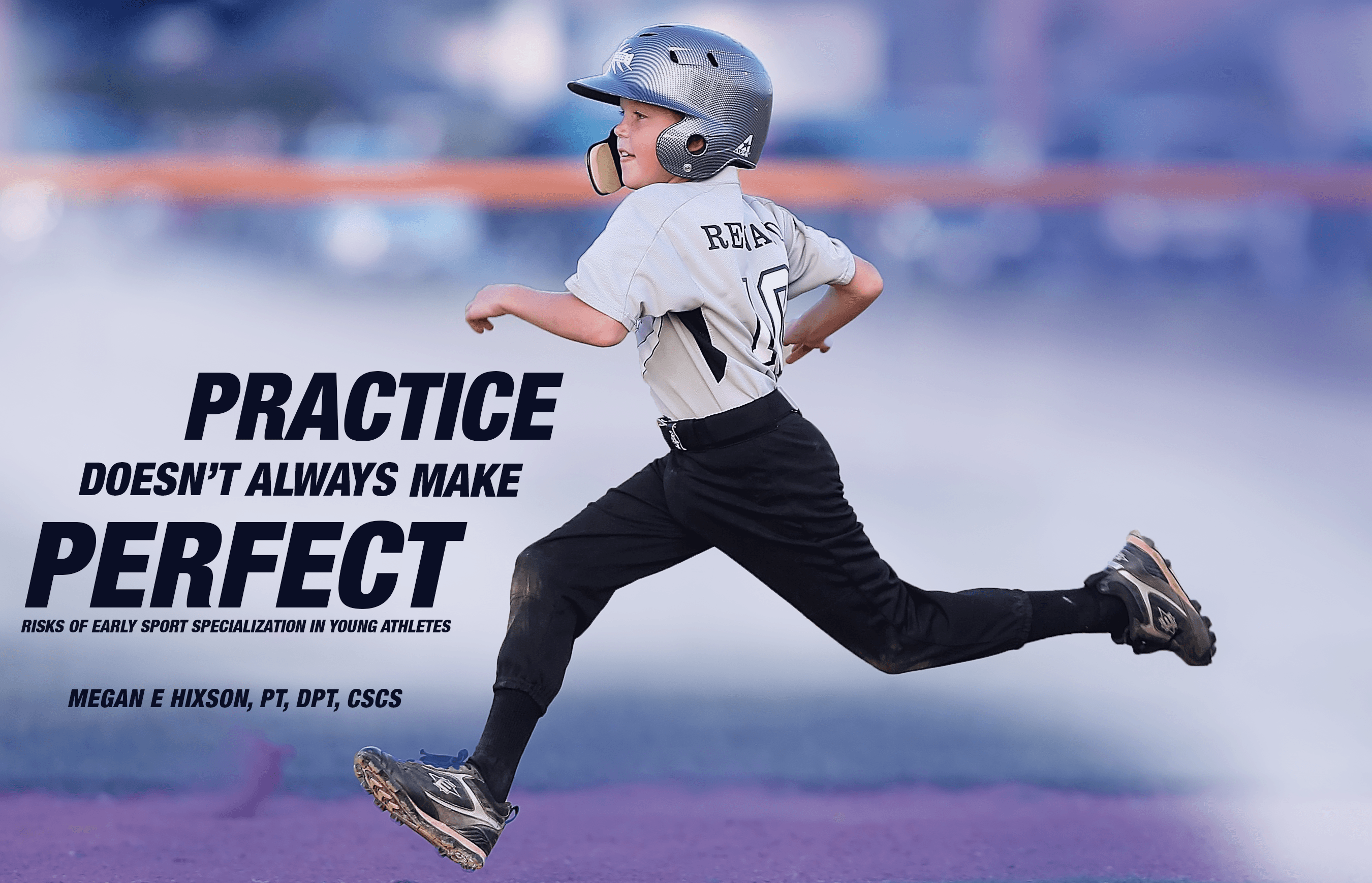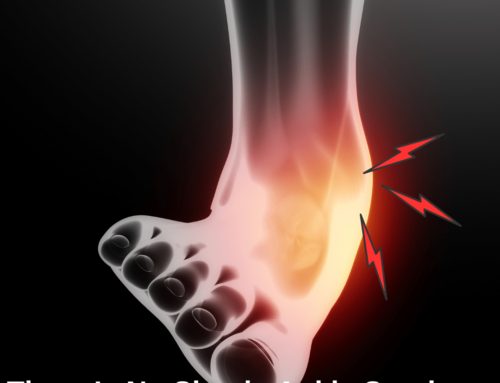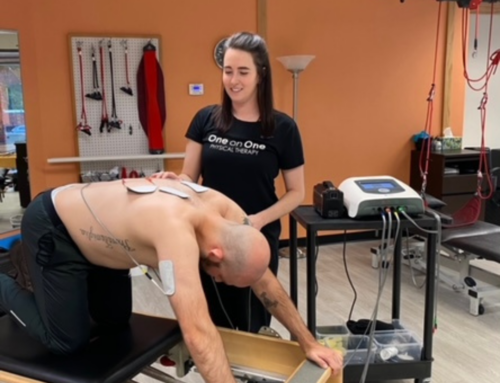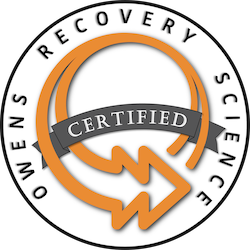Practice Doesn’t Always Make Perfect

Risks of Early Sport Specialization in Young Athletes
Youth sport participation has increased tremendously over the past several decades. In the past 30 years, there has been a 200% increase in the number of children participating in youth sports. Sports are a great way for kids to develop skills, learn teamwork, set goals, and socialize with their peers. However, the days of simple recreational sport are slowly fading for many of our nation’s youth. Kids are being asked to compete at higher levels for longer seasons. With the hopes of college scholarships and professional dreams at stake, more and more kids are focusing on perfecting their skills in one sport at much earlier ages. Unfortunately, early sport specialization comes at a risk for the athlete and their future in their chosen sport.
What is early sport specialization?
Early sport specialization is when an athlete focuses on year round, intensive training in a single sport, excluding all other sports at a young age.
What are the risks of early sport specialization?
- Increased risk of injury
- Psychological stress
- Burnout leading to quitting the sport
During developmental years (ages 6-12), the risk of injuries in children is higher for multiple reasons. Children are growing and developing with constant changes in their height, weight, strength, and psychological maturity. Their bodies are not ready for the continuous stress and demands early sport specialization places on them. Growth cartilage located at the growth plate and the musculotendinous junction (where the muscle and the tendon connect) is still present in growing children. This cartilage is susceptible to microtraumas and stress that occur from repetitive use. As children hit growth spurts, their long bones grow faster than their muscles, leading to increased risk of stress and trauma at the point the muscle attaches to their bones. Repetitive movement patterns can further increase the stress to their bones and tendons. Children also have developing brains, therefore do not have good motor coordination and control at these younger ages and often appear “clumsy”.
Psychological stress increases due to the rigor of the practice and training schedules year round sport specialization often requires. Children have little time for unstructured and creative play time which is imperative to their development. Their developing minds have difficulty processing and meeting the increasing demands of sport specialization. They often feel pressured to succeed at an early age with dreams of college and professional glory on their mind. The increase in psychological stress combined with a developing body that is physically not ready to meet the demands (year round training) and the required skill set for success can often lead to burnout. Studies have shown that many children who specialize at younger ages often drop out of their sport by adolescence secondary to burnout.
Early sport specialization vs. Multi-sport participation:
There is no evidence that early sport specialization leads to better performance in the child’s chosen sport. In fact, by participating in multiple sports, kids are able to better develop a wide array of skills physically, socially, and psychologically thus making them overall better athletes. Study after study has shown athletes who reach elite levels typically participated in multiple activities and unstructured sports during their developmental years, 6-12 years of age. Overtraining also leads to higher incidences of injury with greatest risk occurring in those training > 16 hours/ week.
Pediatric sports medicine has grown over the past few decades as more and more kids participate in competitive sports, at higher levels, placing greater demands on their minds and bodies. Overuse injuries have increased immensely as the same muscles and movement patterns are performed over and over, month after month with little to no time to rest.
At what age should my child start specializing in their sport?
A child should not specialize in a single sport until they have reached puberty, typically around the age of 12. By waiting to specialize, you are allowing your child’s body to develop multiple skills and movement patterns that will help them become better athletes, reduce their risk of injury, and reduce their risk of early dropout. It also allows the child to be fundamentally ready/mature, both physically and psychologically, to learn the specific skills needed for their sport, allowing for greater chance of success.
What if my child develops an overuse injury or starts reporting pain during their sport?
If your child is reporting pain or if you notice a change in their movement patterns or ability to perform their skill set, have your child evaluated by a physical therapist who works with young athletes. The physical therapist can determine the cause of pain and set up a treatment plan to help get the athlete back on the playing field as quickly as possible. They can also work with the young athlete on injury prevention programs to reduce the risk of future injuries as the child continues to grow and develop in their sports.
Conclusion:
Early sport specialization has not been shown to improve athletic skills and a child’s success in their sport. By specializing at a younger age, the child is prevented from developing multiple athletic skills that will make them better athletes once they select their sport of choice. Waiting until a child reaches puberty (age 12) to specialize will help reduce the risk of injury, burnout, and provides your child with the greatest chance of success!
Is your child experiencing pain or are you unsure if they are developing and training properly? Megan offers free 30 minute consultations to answer all your questions!
Dr. Megan Hixson is a Physical Therapist and a Certified Strength and Conditioning Specialist who works at One-on-One Physical Therapy, a multidisciplinary private practice in Atlanta. She specializes in orthopedic related injuries and conditions and has a special interest in sports physical therapy. She is trained in treating the young athlete and enjoys working with these young clients on development and injury prevention. To learn more, visit www.onetherapy.com or you can reach Dr. Hixson at megan@onetherapy.com.






